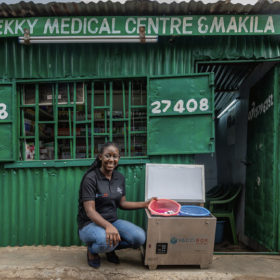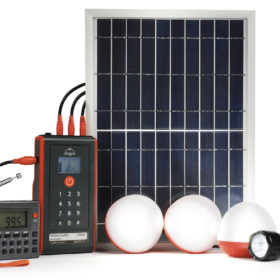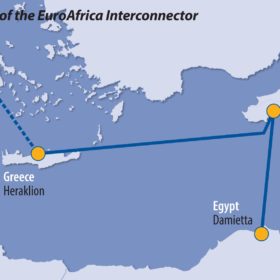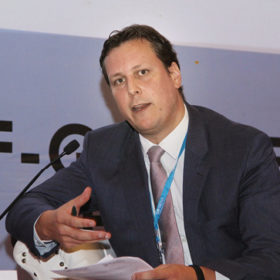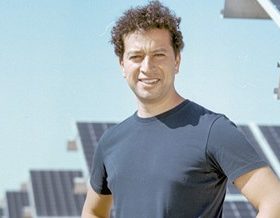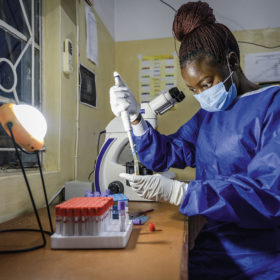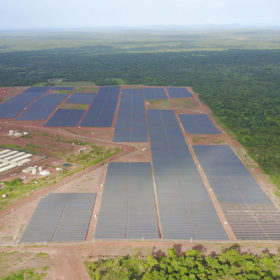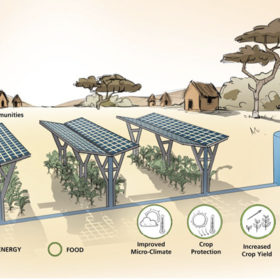Dropping in on Kenya
Kenyans are “curious and quick to adopt new things,” Drop Access CEO Norah Magero tells pv magazine. But skepticism about new tech is only natural, so the NGO is trying to drive the adoption of solar panels, solar pumps, and solar refrigeration by increasing energy literacy.
Putting capital to work
Venture capital investment in solar and energy storage companies in sub-Saharan Africa brings with it considerable risk, but also holds the promise of making an outsized impact in delivering clean energy access. KawiSafi Ventures Managing Director Amar Inamdar says that venture capital investment in frontier markets will be a key part of the “capital stack” required to pursue the joint goals of leapfrogging fossil fuel energy development in the continent and lighting up African lives.
Making connections
Plans to connect European and African grids are taking shape, with a 1 GW cable that will snake its way under the Mediterranean Sea from Egypt to Cyprus. Further interconnections from Cyprus to the Greek island of Crete and on to the European mainland mean that before long, kilowatt hours generated in the deserts of North Africa and beyond could be powering homes and businesses as far away as Western and Northern Europe.
From fragility to opportunity, via solar
The Desert to Power Initiative, spearheaded by the African Development Bank (AfDB), aims to provide clean, reliable electricity to 250 million people across 11 countries in the Sahel region of Africa. This will involve up to 10 GW of solar, along with a backbone of transmission infrastructure spanning much of the continent from east to west. pv magazine recently met with Daniel Schroth, the bank’s director of renewable energy and energy efficiency, to discuss the initiative.
Green future for the Rainbow Nation
South Africa’s energy landscape is at a pivotal point. Productive policies are finally starting to fall into place, driving rapid growth in the solar industry. pv magazine recently sat down with Chris Ahlfeldt, the owner and founder of Blue Horizon Energy Consulting Services, to find out more.
Success on the Nile
Egypt wants to become a regional energy hub in both gas and electricity, the latter to be serviced in good part by its enormous solar potential. KarmSolar began as an idea in a Cairo café at a revolutionary time in Egypt’s history. But now the company can be found at every link in the solar value chain, and it plans to play a key role in the nation’s ambitious energy future. pv magazine sat down with KarmSolar CEO Ahmed Zahran to talk shop.
Green hydrogen of Africa
Africa’s size and its abundance of renewable energy and mineral resources make it ideal for green hydrogen production. Indeed, some large-scale projects are already in the making. But will green hydrogen become just another exploited African resource? pv magazine recently sat down with Chigozie Nweke-Eze, founder of Integrated Africa Power (IAP), to discuss the green hydrogen opportunity for Africa and whether resources can be used for export industries when domestic needs are so high.
A new day at sunset
For the many millions of people in sub-Saharan Africa who lack access to electric lighting, sunset brings an almost enveloping dark. But Light Libraries is one handy solar-powered program that brings an affordable end to darkness for school students. pv magazine sat down with Sofia Ollvid from SolarAid to discuss how these libraries work.
From solar-home systems to large mining applications
Across much of the African continent, off-grid solar can provide the antidote to unreliable infrastructure and exorbitant connection costs. Standalone solar and energy storage are already improving the quality of life for many households and enabling the economic prosperity of commercial and industrial players. THEnergy’s Thomas Hillig examines how off-grid solar systems large and small are influencing energy developments across the continent.
Tripling land use in West Africa
An international team is investigating agriPV applications to help rural parts of West Africa increase productivity by tripling land use. Countries can take dual land-use ideas a step further in Mali and The Gambia, for example, by growing food, producing solar power, and harvesting rainwater with solar modules and their installed structures, according to Fraunhofer ISE’s Jessica Berneiser and Brendon Bingwa.
